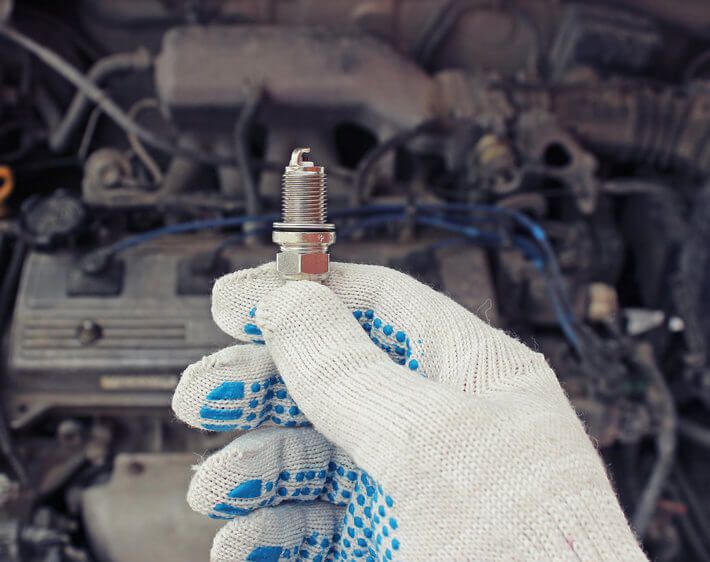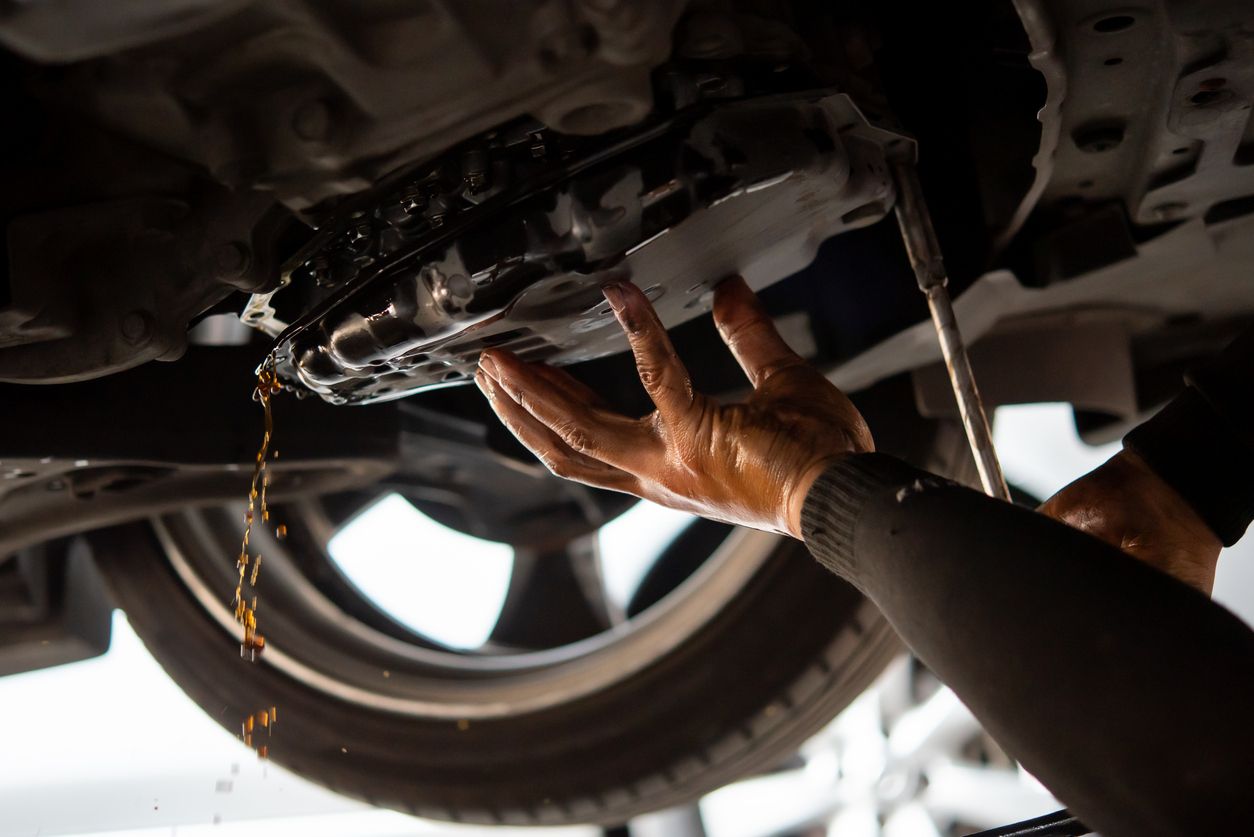Experiencing a loss of power when accelerating can be both frustrating and concerning. If your car hesitates or struggles to gain speed, read on to find the culprit of this car acceleration problem and learn what you can do about it.
TYPES OF CAR ACCELERATION PROBLEMS
Automobiles are a perfect example of synergy — that is, their whole is greater than the sum of their parts. If one thing breaks, the whole car can suffer. To simplify troubleshooting, we've separated car acceleration problems into three categories: reduced power, temporary loss of power, and sudden, complete loss of power.
Please note: The items below are assigned to the categories they generally fall under, but they are not limited to them. Depending on their severity, issues may present themselves differently.
IF YOUR CAR HAS LITTLE TO NO POWER WHEN ACCELERATING…
If your car feels generally sluggish during acceleration, chances are your vehicle needs a little maintenance. Many factors can cause reduced acceleration, but here are the common culprits:
Dirty Air Filter
Engine air filters ensure that dirt and other debris don’t make it into your engine. Over time, caught debris restricts the flow of air through the filter. When your engine doesn’t receive enough air, it may try to compensate by guzzling more fuel, but it can only do so much.
Once your air filter is officially clogged, no amount of fuel can keep your engine running optimally. Fortunately, air filter replacement doesn’t need to be a headache — stop by Firestone Complete Auto Care to give your engine a breath of fresh air.
Clogged Fuel Filter
Your fuel filter’s job is to prevent anything other than fuel from reaching your fuel injectors. During normal use, debris can build up in the filter and restrict fuel flow.
In many cases, a restriction in flow may not have a noticeable effect on performance at idle since little fuel is needed. During acceleration, though, the demand for fuel increases, so a restricted fuel filter can cause your vehicle to act sluggish or lose power. If this is the source of your acceleration issue, you simply need to replace your fuel filter.
Dirty Fuel Injectors
Your fuel injectors are responsible for delivering the right amount of fuel to your engine at the correct time. Most modern vehicles have one fuel injector per cylinder, so if even one of them becomes clogged or fails, it can prevent your vehicle from running optimally. There are many symptoms of bad or dirty fuel injectors — from reduced gas mileage to poor acceleration.
Bad Spark Plugs
Two things can cause your spark plugs to go bad:
- Fouling: Over time, spark plugs can accumulate carbon deposits, oil, and other contaminants, leading to “fouling.”
- Improper Gapping: From constant arcing, the electrodes in your spark plug physically wear down, leading to a wider gap between the electrodes.
Either of these situations makes it harder for the spark to bridge the gap between your spark plugs’ electrodes. When the spark can no longer jump the gap, fuel can’t ignite inside the combustion chamber, which can lead to symptoms like misfiring, reduced gas mileage, and sluggish acceleration.
IF YOUR CAR LOSES POWER, THEN RETURNS BACK TO NORMAL…
Does your engine bog down or sputter when you accelerate, but return to normal when you let off the gas? If so, this normally indicates that a component can’t keep up with the demand for increased engine speed. In addition to the culprits from the previous category, these components could be the source of your issue:
Failing Fuel Pump
Your vehicle’s fuel pump is a crucial component of your fuel system. It delivers fuel from the gas tank to the engine at the correct pressure and flow rate. If the fuel pump begins to fail from wear and tear, electrical issues, or clogs, it may struggle to maintain adequate fuel pressure, which can prevent your car from accelerating properly.
Clogged Exhaust
You might not think that your exhaust system could have an impact on acceleration. After all, it gets rid of gasses instead of using them. But that couldn’t be further from the truth.
If your exhaust system or catalytic converter has been restricted by soot, rat nests, or other debris, it essentially chokes off your engine’s “exhale,” leading to increased back pressure and poor operation. When exhaust gasses are restricted, you may notice odd growling or hissing noises and decreased acceleration.
Faulty Throttle Position Sensor (TPS)
Your throttle position sensor measures how far your vehicle’s gas pedal is pressed down. Its goal is to align your request for acceleration (or deceleration) with the ideal amount of air and fuel the engine requires. When this sensor starts to fail, your car’s computer may have difficulty assessing how far you step on the gas pedal, which can lead to inconsistent or poor acceleration.
Slipping Transmission
When you imagine acceleration, you might only think about your engine. But your transmission plays a large role in acceleration too! It’s responsible for harnessing engine power and delivering it to your vehicle’s wheels.
Over time, the components inside of your transmission — like clutch packs — can wear down. When they do, a transmission slip can occur. If it does, you may notice that acceleration isn’t as consistent or snappy as it used to be.
Faulty Air Sensors
Most modern vehicles utilize two types of airflow sensors: a mass airflow (MAF) sensor and oxygen (O2) sensors.
The MAF sensor measures the amount of air entering the engine, and the O2 sensors measure the quantity of oxygen in the exhaust system. The oxygen sensors help your engine calculate and adjust the fuel flow in the injectors. Other oxygen sensors help verify your catalytic converter is doing its job. If one of them fails, the air-fuel ratio can be thrown off, leading to unpleasant symptoms like poor performance and sluggish or unpredictable acceleration.
IF YOUR CAR SUDDENLY LOSES POWER COMPLETELY…
Did your engine stop running while you were driving down the road? In the automotive industry, we call that “stalling.” Cars stall for many reasons — from bad alternators to poor manual shifting techniques. But if your car has no power when accelerating and stalls, it could be due to a severe case of one or more of the following issues.
Bad Timing Chain
As you might suspect, your vehicle’s timing chain — sometimes called a timing belt — keeps the camshaft and crankshaft in sync. Over time, your timing chain can stretch, which can lead to inaccurate syncing. There are many symptoms of worn-out timing chains, including:
- An illuminated “check engine” light
- Rattling and other strange noises
- Engine misfiring
- Reduced fuel efficiency
- Poor acceleration
If your timing chain is on its way out, it will need to be replaced to prevent damage to your engine. Replacing a timing chain is a complex ordeal, so we recommend leaving this engine repair to Firestone Complete Auto Care's qualified technicians.
Failing Ignition Coil
Your ignition coils convert low-voltage electricity from your vehicle’s battery into high-voltage energy that your spark plugs can use to ignite fuel. Ignition coils can fail for various reasons, and when they do, your spark plugs may not receive enough energy to do their job adequately. This can lead to misfiring, backfiring, excessive fuel consumption, and slow acceleration.
ACCELERATE RESOLUTION WITH FIRESTONE COMPLETE AUTO CARE
Whether you have worn out or damaged spark plugs, a faulty oxygen sensor, or another critical issue, it's important to have your vehicle inspected by a professional technician. If left unresolved and undiagnosed, you may end up with bigger issues and more costly repairs down the road.
Don’t put off your vehicle's health. Make an appointment for a Complete Vehicle Inspection at your local Firestone Complete Auto Care. Our professional technicians can check for potential culprits of this issue and find out exactly what’s happening under your hood!



